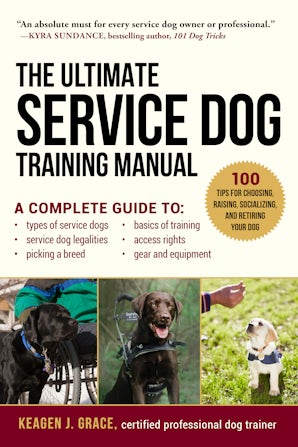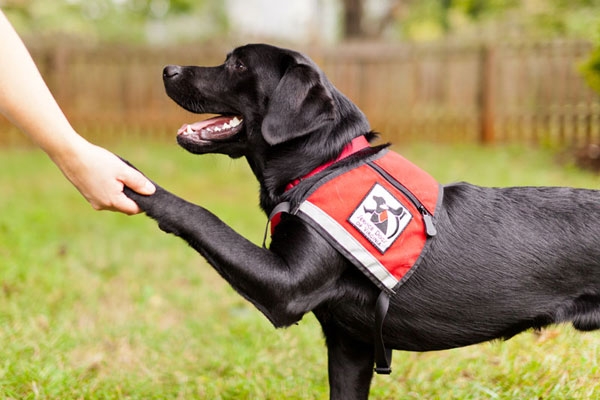The Advantages of Dog Training For Dogs: An Overview for Animal Owners
The Advantages of Dog Training For Dogs: An Overview for Animal Owners
Blog Article
Top Dog Training Methods for each Stage of Your Pet's Life
Reliable pet training is important at every phase of a pet dog's life, as each stage offers one-of-a-kind challenges and chances for growth. It is vital to recognize that training should advance together with a canine's advancement, ensuring that techniques remain reliable and pertinent.
Puppy Educating Basics
Puppy training essentials lay the groundwork for a mannerly adult dog and involve numerous crucial elements that ought to not be neglected. The first phase of training focuses on establishing a solid bond between the puppy and its proprietor, which is critical for efficient interaction. Socialization is extremely important; subjecting young puppies to different environments, individuals, and various other pets assists them establish confidence and flexibility, decreasing the probability of behavior concerns later on in life.
Fundamental commands, such as sit, stay, and come, develop the structure of obedience training. Utilizing positive reinforcement strategies, such as deals with and appreciation, motivates wanted habits and fosters a positive learning experience. Uniformity in commands and training sessions is important, as puppies prosper on regular and structure.
Additionally, residence training is a vital element of puppy training. Establishing a routine schedule for restroom breaks and utilizing assigned areas can aid reduce crashes and promote excellent routines. In general, an all-round approach to puppy training, integrating obedience, home, and socializing training, establishes the stage for a well-adjusted grown-up dog, making certain an unified connection in between the family pet and its owner.
Teen Behavior Management
As pups grow into teens, their behavior can change substantially, typically presenting new difficulties for proprietors. This developing phase, usually occurring between 6 months and two years, is noted by heightened power levels, interest, and a burgeoning feeling of independence. Comprehending these modifications is crucial for reliable habits monitoring.
Adolescents might exhibit defiant propensities, such as neglecting commands they formerly understood or participating in harmful habits. Uniformity in training stays paramount; enhancing learned actions with favorable support can help counteract these obstacles. Brief, engaging training sessions are important to maintain their passion and focus.

Furthermore, developing an organized routine can considerably boost a teen dog's complacency. Normal workout is vital to transport their energy positively, decreasing the probability of unwanted habits. By using these techniques, proprietors can properly navigate the complexities of teenage habits, fostering a well-adjusted, satisfied canine friend.
Grown-up Pet Dog Obedience Strategies

Positive support remains a key method; satisfying excellent habits with treats, appreciation, or playtime motivates conformity. Uniformity is critical; the same commands and rewards need to be made use of by all family members to stay clear of complication.
Incorporating training right into daily regimens can additionally work. For example, method commands throughout walks or meal times, enabling training to mix effortlessly into day-to-day life. Engaging in organized tasks, like agility courses or obedience courses, can even more improve a pet dog's skills while offering important socializing opportunities.
It is necessary to acknowledge that grown-up pets might also exhibit stubbornness or complacency. Changing training techniques to preserve their passion, such as varying rewards or introducing new commands, can help sustain inspiration. In general, an ongoing commitment to obedience training will promote a balanced and mannerly grown-up canine.
Elderly Pet Adjustment Methods
Identifying the special requirements of senior pets is essential for guaranteeing their comfort and health. As pets age, they might experience a decrease in flexibility, vision, and cognitive feature, necessitating tailored adjustment approaches.
First, think about changing the living atmosphere. Guarantee that the home is obtainable and secure; remove challenges and offer non-slip surfaces to stop drops. Furthermore, think about making use of steps or ramps to help them access their favored spaces.
Secondly, exercise must be adjusted to make up reduced stamina and joint wellness (Dog Training For Dogs). Participate in much shorter, more constant walks, and incorporate mild activities like swimming, which can be valuable for arthritic joints
Furthermore, mental excitement remains important. Use basic challenge playthings or engage in scent work to maintain their minds sharp, published here while staying clear of frustrating tasks that might discourage them.
Lastly, regular veterinary exams are important to keep track of health adjustments and readjust care routines as necessary. By executing these adjustment methods, you can improve the top quality of life for your senior dog, ensuring they age gracefully and easily.
Lifelong Discovering and Enrichment
While pets of all ages gain from learning and psychological stimulation, lifelong enrichment is especially crucial for maintaining cognitive wellness and emotional wellness in both elderly and younger pets. Involving activities not only improve a canine's lifestyle however also strengthen the bond between the canine and its proprietor.
Enrichment can take different types, consisting of interactive playthings, puzzle feeders, and scent his comment is here work, which stimulate a pet's detects and motivate analytic. Regular training sessions, integrating new commands or tricks, keeps their minds sharp and advertises a sense of achievement. Socializing with various other dogs and people is just as important, as it assists prevent behavior problems and cultivates versatility.
Additionally, incorporating physical workout into a pet dog's routine is vital for general wellness. Tasks like agility training, bring, or long walks provide both physical and psychological excitement, making sure pet dogs stay happy and involved.
Finally, consider differing the atmosphere by introducing new areas for walks or playdates. This adjustment can reignite a dog's inquisitiveness and excitement for expedition. Lifelong learning and enrichment not only add to a satisfying life but additionally promote a harmonious partnership with your canine buddy.
Conclusion
Efficient pet dog training methods progress throughout a pet dog's life, resolving the distinct requirements of each developmental stage. Highlighting regular psychological excitement, socializing, and physical exercise cultivates a balanced and satisfying life for pets.
Effective canine training is essential at every stage of a pet dog's life, as each phase presents unique difficulties and chances for growth.Puppy training basics lay other the foundation for a mannerly adult dog and involve several essential parts that should not be ignored. In general, an all-round approach to puppy training, integrating house, obedience, and socialization training, establishes the stage for a well-adjusted grown-up pet, making certain a harmonious connection between the pet dog and its owner.
Numerous pet dog proprietors may discover that adult canines, while usually more steady in behavior than their teenage equivalents, still call for constant training to preserve obedience and great manners.Efficient pet dog training methods advance throughout a pet dog's life, dealing with the distinct needs of each developing phase.
Report this page